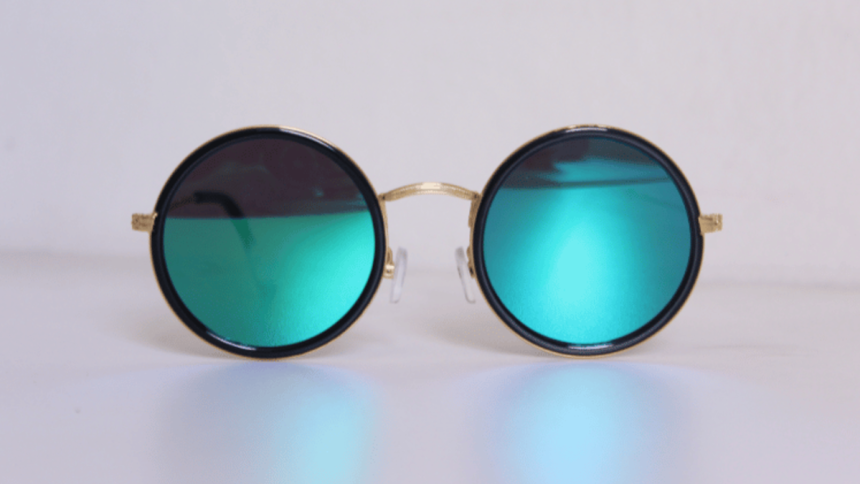It doesn’t matter if you’re lounging at the beach, driving on a sunny day, or enjoying winter sports; sunglasses are essential. However, not all sunglasses are the same. In particular, polarized lenses have been marketed as a superior choice for eye protection and comfort. But what exactly are polarized lenses, and do they truly offer better benefits for your eyes?
Let’s explore the science behind polarized lenses to determine whether they’re really worth the hype.
What Are Polarized Lenses?
Polarized lenses are specialized eyewear lenses designed to reduce glare. Glare occurs when light reflects off flat surfaces like water, roads, or snow, creating intense brightness that can strain the eyes and obscure vision.
These lenses contain a special chemical film that filters light. This filter blocks horizontal light waves, the ones responsible for glare, while allowing vertical light to pass through. The result is a clearer, more comfortable view with improved contrast and reduced eye strain.
How Do Polarized Lenses Work?
If you want to understand the effectiveness of polarized lenses, it’s helpful to know a bit about light. Natural sunlight scatters in all directions. When it hits flat surfaces, it tends to reflect in a horizontal direction. This reflection intensifies light, creating the annoying glare you often experience while driving or near water.
The polarization filter in the lenses is aligned vertically. It absorbs and blocks the horizontally reflected light. This process not only reduces glare but also enhances visual clarity and alleviates discomfort. It’s similar to closing blinds on a sunny window; only the necessary light is allowed in.
Benefits of Polarized Lenses
1. Reduced Eye Strain
Glare forces your eyes to work harder, which can lead to squinting, headaches, and general fatigue. By cutting down on glare, polarized lenses help reduce this strain, especially during extended outdoor activities.
2. Improved Visual Clarity
With glare minimized, objects appear sharper and clearer. Whether you’re fishing and need to see below the water’s surface or skiing down a slope with the sun bouncing off snow, these lenses provide a more vivid visual experience.
3. Better Contrast and Color Perception
Polarized lenses help enhance contrast and true color perception. This is particularly valuable in environments with intense lighting, where regular sunglasses might make everything look washed out or dim.
4. Increased Comfort
The comfort factor is a big win. Without the need to squint constantly, your eyes can relax. This makes activities like driving, boating, or hiking much more enjoyable.
Are There Any Downsides?
While polarized lenses offer many benefits, they might not be ideal in every situation.
1. Digital Screen Distortion
One of the most common issues is difficulty viewing LCD screens. Polarized lenses can make screens on smartphones, ATMs, or vehicle dashboards appear distorted or invisible at certain angles.
2. Not Always Necessary
For some low-light environments, such as dusk or overcast days, polarized lenses may make it harder to see clearly. In these cases, lenses with standard UV protection might be more appropriate.
3. Cost
Because of the advanced technology involved, polarized sunglasses are often more expensive than standard ones. However, many people find the added comfort and protection worth the investment.
Who Should Use Polarized Lenses?
Anyone who spends significant time outdoors can benefit from polarized lenses, but certain activities make them particularly valuable:
- Driving: Reduces road glare and improves visibility
- Fishing and Water Sports: Cuts through water surface glare, allowing better view beneath
- Snow Sports: Reduces snow glare, enhancing contrast on the slopes
- Cycling and Hiking: Offers comfort and better depth perception
They’re especially beneficial for individuals with light sensitivity or those recovering from eye surgery, although it’s always best to consult an eye care professional in such cases.
Are They Better for Eye Health?
The core function of polarized lenses is to reduce glare, but they do not inherently offer more UV protection than regular sunglasses. However, many polarized lenses also come with full UV protection, which is essential for maintaining long-term eye health.
UV exposure can contribute to cataracts, macular degeneration, and other eye issues. So, when shopping for sunglasses, it’s crucial to ensure they block 100% of UVA and UVB rays. If your polarized lenses offer this protection, then yes, they are better for your eyes in both comfort and health aspects.
For some of the best options available, including high-quality shield-style sunglasses with full polarization and UV protection, check out neveneyewear.com
What to Look for When Buying Polarized Lenses
Not all polarized lenses are created equal. When shopping for a pair:
- Check for UV Protection: Ensure the lenses block 100% of UVA and UVB rays.
- Opt for Trusted Brands: Stick to reputable eyewear companies that specialize in quality optics.
- Test the Polarization: You can verify polarization by looking at a reflective surface or screen, then rotating the glasses. If the glare reduces or changes, they’re polarized.
- Choose the Right Tint: Different tints are suited for various activities. For example, grey tints preserve natural color balance, while amber or brown tints enhance contrast.
Conclusion
Polarized lenses are more than just a fashion statement, they provide real functional benefits for outdoor vision. While they might not be essential for everyone, they significantly improve visual comfort, reduce glare, and offer better clarity for many activities.
If you spend a lot of time outdoors, investing in a high-quality pair of polarized sunglasses is a smart move. Just remember to check for UV protection and choose a design that suits your needs and lifestyle.
Ultimately, polarized lenses can be a game-changer for your eye comfort and visual experience in bright conditions. If you’ve never tried them before, now might be the perfect time to see the world through a clearer, more comfortable lens.
Lynn Martelli is an editor at Readability. She received her MFA in Creative Writing from Antioch University and has worked as an editor for over 10 years. Lynn has edited a wide variety of books, including fiction, non-fiction, memoirs, and more. In her free time, Lynn enjoys reading, writing, and spending time with her family and friends.















